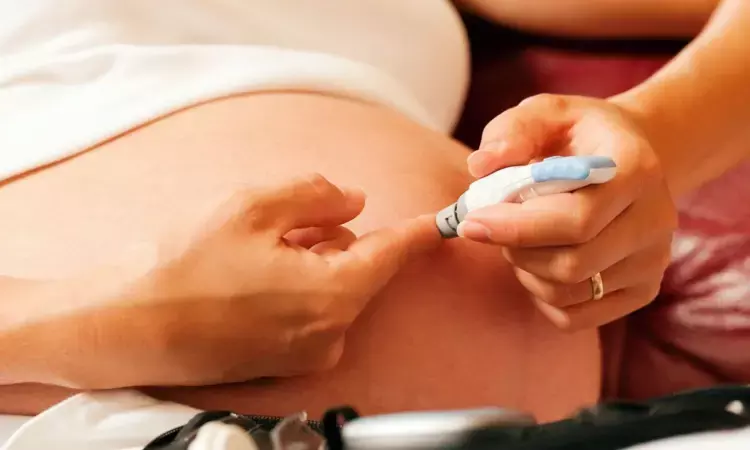- Home
- Medical news & Guidelines
- Anesthesiology
- Cardiology and CTVS
- Critical Care
- Dentistry
- Dermatology
- Diabetes and Endocrinology
- ENT
- Gastroenterology
- Medicine
- Nephrology
- Neurology
- Obstretics-Gynaecology
- Oncology
- Ophthalmology
- Orthopaedics
- Pediatrics-Neonatology
- Psychiatry
- Pulmonology
- Radiology
- Surgery
- Urology
- Laboratory Medicine
- Diet
- Nursing
- Paramedical
- Physiotherapy
- Health news
- Fact Check
- Bone Health Fact Check
- Brain Health Fact Check
- Cancer Related Fact Check
- Child Care Fact Check
- Dental and oral health fact check
- Diabetes and metabolic health fact check
- Diet and Nutrition Fact Check
- Eye and ENT Care Fact Check
- Fitness fact check
- Gut health fact check
- Heart health fact check
- Kidney health fact check
- Medical education fact check
- Men's health fact check
- Respiratory fact check
- Skin and hair care fact check
- Vaccine and Immunization fact check
- Women's health fact check
- AYUSH
- State News
- Andaman and Nicobar Islands
- Andhra Pradesh
- Arunachal Pradesh
- Assam
- Bihar
- Chandigarh
- Chattisgarh
- Dadra and Nagar Haveli
- Daman and Diu
- Delhi
- Goa
- Gujarat
- Haryana
- Himachal Pradesh
- Jammu & Kashmir
- Jharkhand
- Karnataka
- Kerala
- Ladakh
- Lakshadweep
- Madhya Pradesh
- Maharashtra
- Manipur
- Meghalaya
- Mizoram
- Nagaland
- Odisha
- Puducherry
- Punjab
- Rajasthan
- Sikkim
- Tamil Nadu
- Telangana
- Tripura
- Uttar Pradesh
- Uttrakhand
- West Bengal
- Medical Education
- Industry
Study endorses use of closed-loop in type 1 diabetes associated with Pregnancy

A new study endorses closed-loop use in type 1 diabetes pregnancy and highlights how the technology can facilitate positive pregnancy experiences. The study is published in the peer-reviewed journal Diabetes Technology & Therapeutics (DTT).
Julia Lawton, from the University of Edinburgh, and coauthors, on behalf of the AiDAPT Collaborative Group, interviewed closed-loop participants in the Automated insulin Delivery Amongst Pregnant women with T1D (AiDAPT) trial. “Women described how closed-loop lessened the physical and mental demands of diabetes management, enabling them to feel more normal and sleep better,” reported the investigators. “By virtue of spending increased time-in-range, women also worried less about risks to their baby and being judged negatively by healthcare professionals.”
"To realize fully the benefits of closed-loop, pregnant women would benefit from initial, intensive oversight and support together with closed-loop specific education and training,” stated the investigators.
"No closed-loop system is approved in the U.S. for pregnancy use as the targets needed are much tighter during pregnancy associated with T1D,” states Satish Garg, MD, Editor-in-Chief of Diabetes Technology & Therapeutics, and Professor, University of Colorado Denver, Barbara Davis Center for Diabetes. “The only system that allows that is CamAPS FX, which is approved in Europe and Australia.
The percentage of time that participants spent in the pregnancy-specific target glucose range (63 to 140 mg/dL) as measured by glucose sensors from 16 weeks’ gestation until delivery was significantly higher among participants in the closed-loop group than among those in the standard-care group, with a difference between groups of 10.5 percentage points. I recently wrote an editorial in the New England Journal of Medicine on this topic: Technology Use and Glycemic Outcomes during Pregnancy with Type 1 Diabetes.
Reference:
Prof. Julia Lawton, Dr. Barbara Kimbell, Dr. Mia Closs, Ms. Sara Hartnell, Dr. Anna Dover, Prof. Rebecca M Reynolds, Ms. Corinne Collett, Prof. Katharine Barnard, Dr. Roman Hovorka, Dr. David Rankin, and Prof. Helen Murphy, Listening to women: experiences of using closed-loop in type 1 diabetes pregnancy, https://doi.org/10.1089/dia.2023.0323.
Dr Kamal Kant Kohli-MBBS, DTCD- a chest specialist with more than 30 years of practice and a flair for writing clinical articles, Dr Kamal Kant Kohli joined Medical Dialogues as a Chief Editor of Medical News. Besides writing articles, as an editor, he proofreads and verifies all the medical content published on Medical Dialogues including those coming from journals, studies,medical conferences,guidelines etc. Email: drkohli@medicaldialogues.in. Contact no. 011-43720751


